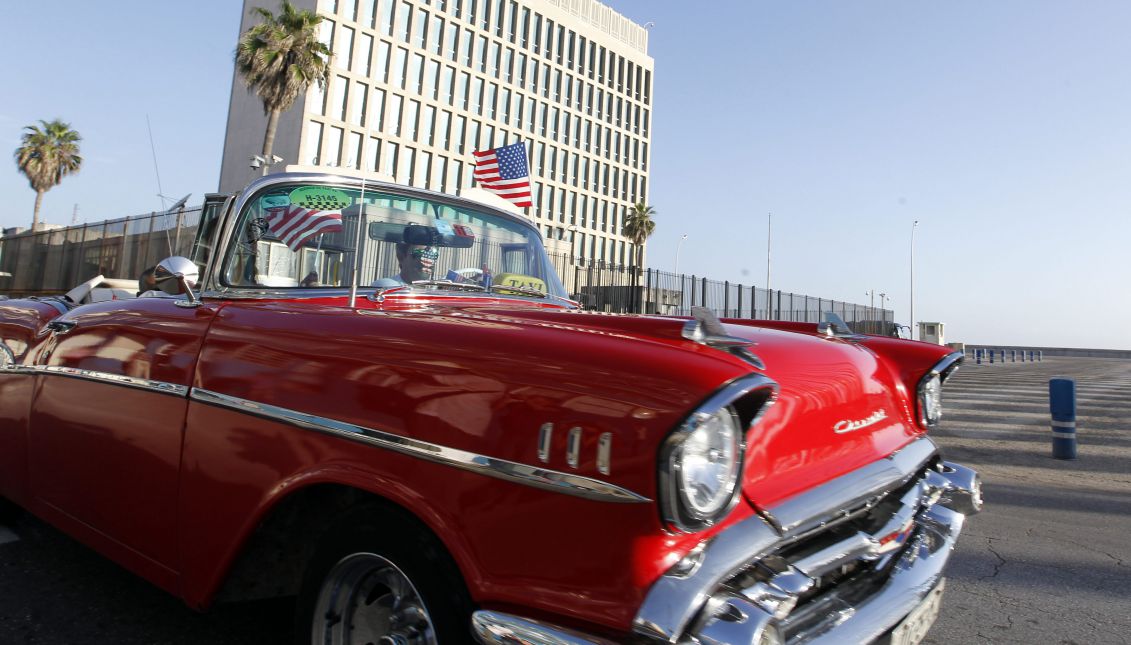
"I used Venezuela as a launch pad to emigrate:" Cuban doctor's quest for freedom
The bid to escape poverty in Cuba has left hundreds of Cuban deserters -the majority of them doctors- in an equally untenable position in Venezuela.
When Yosvani Bofill, a 26-year-old Cuban doctor, arrived in Venezuela's capital Caracas to take part in medical missions, he had one goal - to desert the service and reach Bogota, across the border in Colombia.
"Since I left Cuba I had the idea of deserting. I used Venezuela as a launch pad to emigrate. Ever since I saw the missions, I saw that it was the only way out for a Cuban," says Bofill, for whom his country is "a fenced island."
However, he arrived late, just five days after then-US President Barack Obama suspended the Cuban Medical Professional Parole, a special US visa program for Cuban medical personnel who desert their missions abroad.
"I used Venezuela as a launch pad to emigrate"
Bofill, like many of the hundreds of Cuban deserters, had to undertake a journey for which between $US600 - $US650 (545 - 590 euros) is paid to a "coyote," a people smuggler, to pass through the porous Colombia-Venezuela border.
The route isn't easy. The border crossing at Maicao, in Colombia's La Guajira Department, bordering the Venezuelan state of Zulia, falls in the heart of a desert and is infested with gangs and paramilitary groups.
The other option, through San Antonio del Tachira, Venezuela, and Cucuta, Colombia, isn't any better - guerrillas, drug-traffickers and former paramilitaries lord over the wild, jungle terrain in sweltering conditions.
The bid to escape poverty in Cuba left Bofill in an equally untenable position in Venezuela.
"Venezuela transformed from a Sunday drama into a Sunday night horror movie," Bofill says.
The 20,000 Cuban doctors who joined the Venezuelan social welfare program Mission Barrio Adentro were placed under strict controls.
They weren't allowed to leave the municipalities where their missions were based, couldn't sleep outside their missions and had to return to their residence by six in the evening.
Upon arriving in Bogota, he slept huddled with other Cubans, and suffered harassment from people desperately seeking medicines that were in short supply.
Venezuelan authorities, as well as the Cuban Embassy in Caracas, say don't know the number of desertions that have taken place, but insist there haven't been many.
Many have left Venezuela - some to return to Havana and others to desert - in the last three years following the death of Venezuelan President Hugo Chavez and the worsening of the country's economic crisis.
The former head of one of the Cuban contingents in western Venezuela, who left the mission for the US after marrying a Venezuelan and spoke to EFE under condition of anonymity, said many of his colleagues in the US had left Venezuela when the crisis began to bite.
Eddy Gomez Hernandez, who went to the northern Venezuelan state of Cogedes with the aim of earning some money and returning to his native island, reached Bogota a day after the Parole was canceled.
RELATED CONTENT
Gomez had decided to take up a career in medicine, inspired by some of the doctors in his neighborhood. In Cuba they "are heroes," he says.
"Initially I had no thought of deserting. I deserted after analyzing the future. I leave Cuba a married man and two weeks after arriving I learned that my wife was pregnant," says Gomez, who had worked for 14 months in Venezuela.
Bearing in mind the future of his child, and the harsh treatment from his superiors, even preventing him from visiting his wife during childbirth, he became an undocumented immigrant.
"We abandoned the house and fled," he recalls. He escaped from his bedroom while his colleague was in the bathroom.
"We abandoned the house and fled"
In Maracaibo, in northwestern Venezuela, he found a "coyote" who helped him cross the Colombian border. Along the way, he saw armed groups, smugglers and police from both countries.
Most Cubans were forced to give "everything" to the police, especially the Bolivarian National Guard (Venezuelan militarized police) who stopped them and demanded to see their papers.
And all just to arrive late to Bogota, where some 180 Cubans are currently clamoring for a solution to the migratory limbo they find themselves in.
Bofill and Gomez, however, continue to believe in a future in the US.
"Our hope - said Gomez - is that the US will give us (Cubans) another opportunity."









LEAVE A COMMENT: